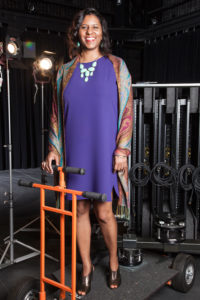The term “entrepreneur” often conjures up images of individuals clad in business attire trying to devise as many ways as possible to maximize profit from their concepts. While that does cover a vast number of innovators, it fails to acknowledge one emerging group, social entrepreneurs.
Shaunelle Curry (’95, ’97) has always wanted to be a force for good. Although teaching fifth grade brought her joy, she left the classroom and joined a non-profit agency in order to have a larger impact. She wanted to be there for the children that came to school hungry or did not have the resources they needed to succeed. She spent time with kids who were on track to enter the juvenile justice system and others who were victims of sexual assault. The kinds of things most people feel sympathy for but try to avoid, Curry met them head on, and she soon realized what she was meant to do.
“I had the heart of a social entrepreneur. I wanted to bring about systemic and institutional change in my community,” she said. “I thoroughly believe that if I see a need and no one else is stepping up to address it then it must be for me to do.”
Much like with for-profit ventures, social entrepreneurship can encompass a great deal. At the core, social entrepreneurs develop, fund and implement change on any number of cultural, social or environmental issues. Goals can be local or grow in scope to serve national and international needs.
While working with at-risk youths in California, Curry realized how something as simple as the music they listened to could influence their lives in a negative way.
“There were certain cultural norms and roles for women that were perpetuated in the music they loved,” she said. “I wanted to help address those environmental influences and raise youth awareness of the larger structural maladies which manipulated their lives.”
Curry worked with teenagers in St. Louis, Chicago and Inglewood, Calif., to petition radio stations to celebrate Mother’s Day weekend with a 24-hour period free of denigrating and misogynistic music. Mother’s Day Radio, or MDR as the movement was known, was a success, and a follow-up symposium a few months later kept things moving in a positive direction. More than 200 students were brought together to examine violence and misogyny in mainstream media and pop culture and the correlating impact it had on their communities. It was a “lightbulb moment” for many of the teens in attendance.
“The overwhelming demand from the students was to be able to take this message to their friends in a way that was relatable and did not alienate them or make them seem ‘preachy,’” Curry said.
Capitalizing on the enthusiasm of the students, Curry created Media Done Responsibly to both further the movement and continue the MDR branding already established by Mother’s Day Radio. MDR is now an incorporated 501(c)(3) that serves as a media literacy education and mentor program.
“We train college students to be peer mentors for middle and high school students,” Curry said. “Our college mentors go into local middle and high schools across Los Angeles County and teach kids to analyze and understand the 13-plus hours of media they consume on a daily basis.”
Curry is back in the classroom with a day job as a media studies lecturer at California State University-Los Angeles. She knows as well as anyone that media is a tool which both influences and reflects culture. Her hope is the work of MDR can help break the cycle of violence, misogyny, bullying, racism, sexism and heterosexism which leads to anxiety in so many children today.
“Depending on the messages they’re receiving, coupled with the way they interpret and internalize those messages, their mental and emotional health can be jeopardized,” she said.
Today, MDR has shared its curriculum and training with more than 30 schools, primarily in the southern California area, but Curry is working to make it more accessible for teachers from around the country and eventually overseas.


